ורבי יוסי הגלילי מי קרינן עני עוני קרינן
And Rabbi Yosei HaGelili could respond: Do we vocalize the word as ani, as would be appropriate for a phrase meaning a poor man’s bread? In fact, we vocalize it oni, which means oppression, affliction, or mourning.
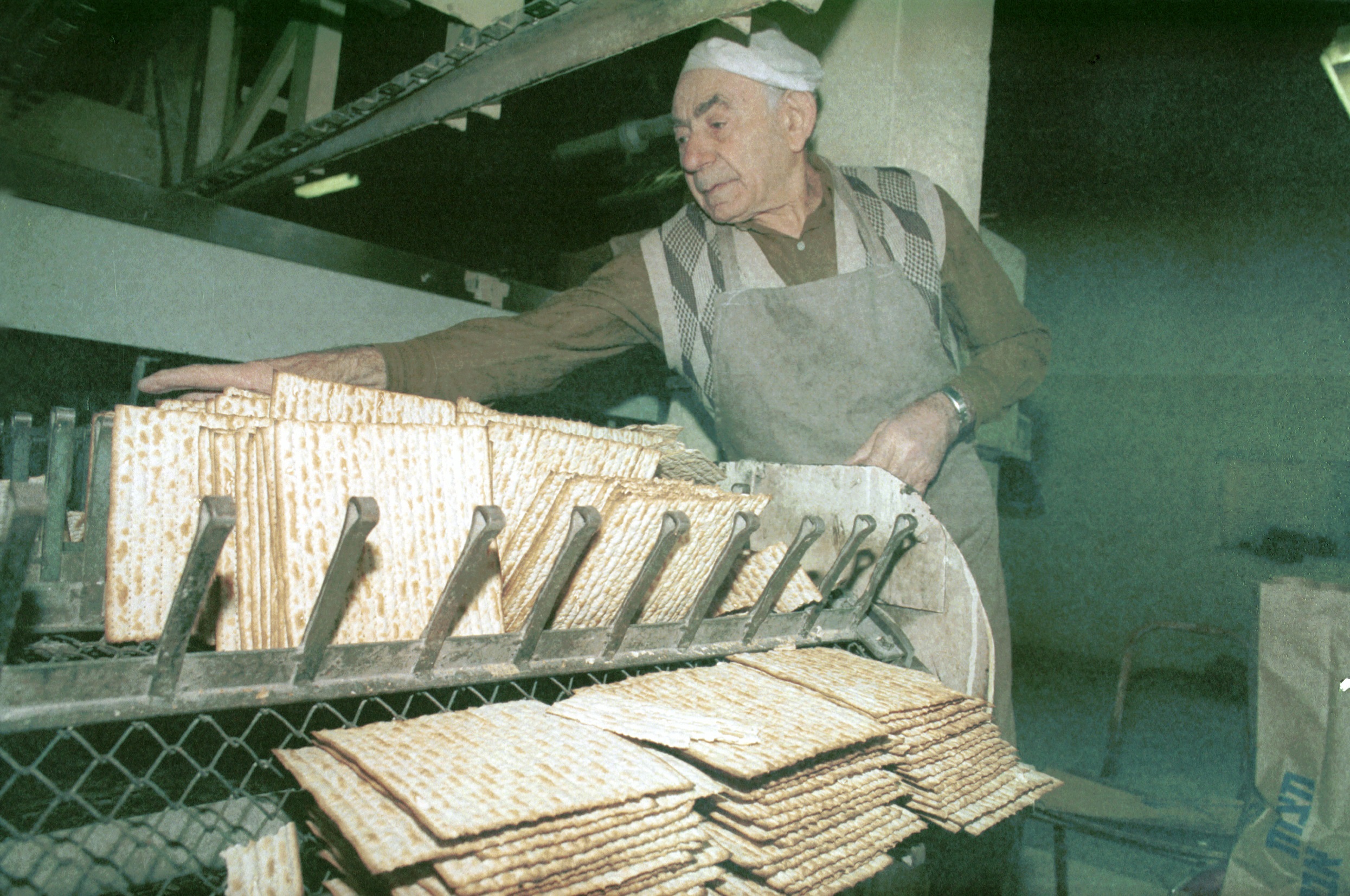
Aviv Matzah Factory, Israel, 1990 From the collection of the National Library of Israel
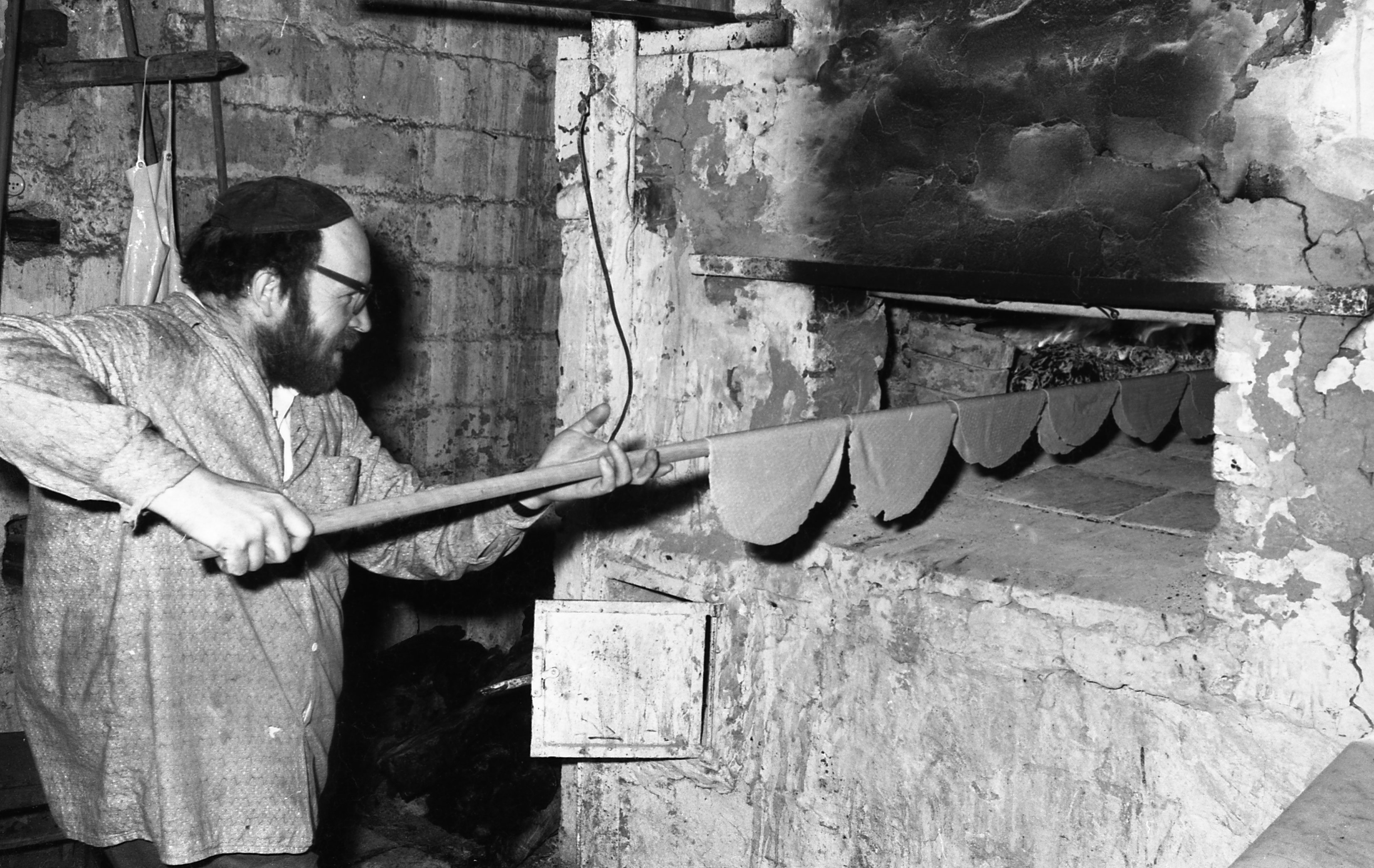
Preparing Shmura Matzah in Kfar Habad, 1972 From the collection of the National Library of Israel
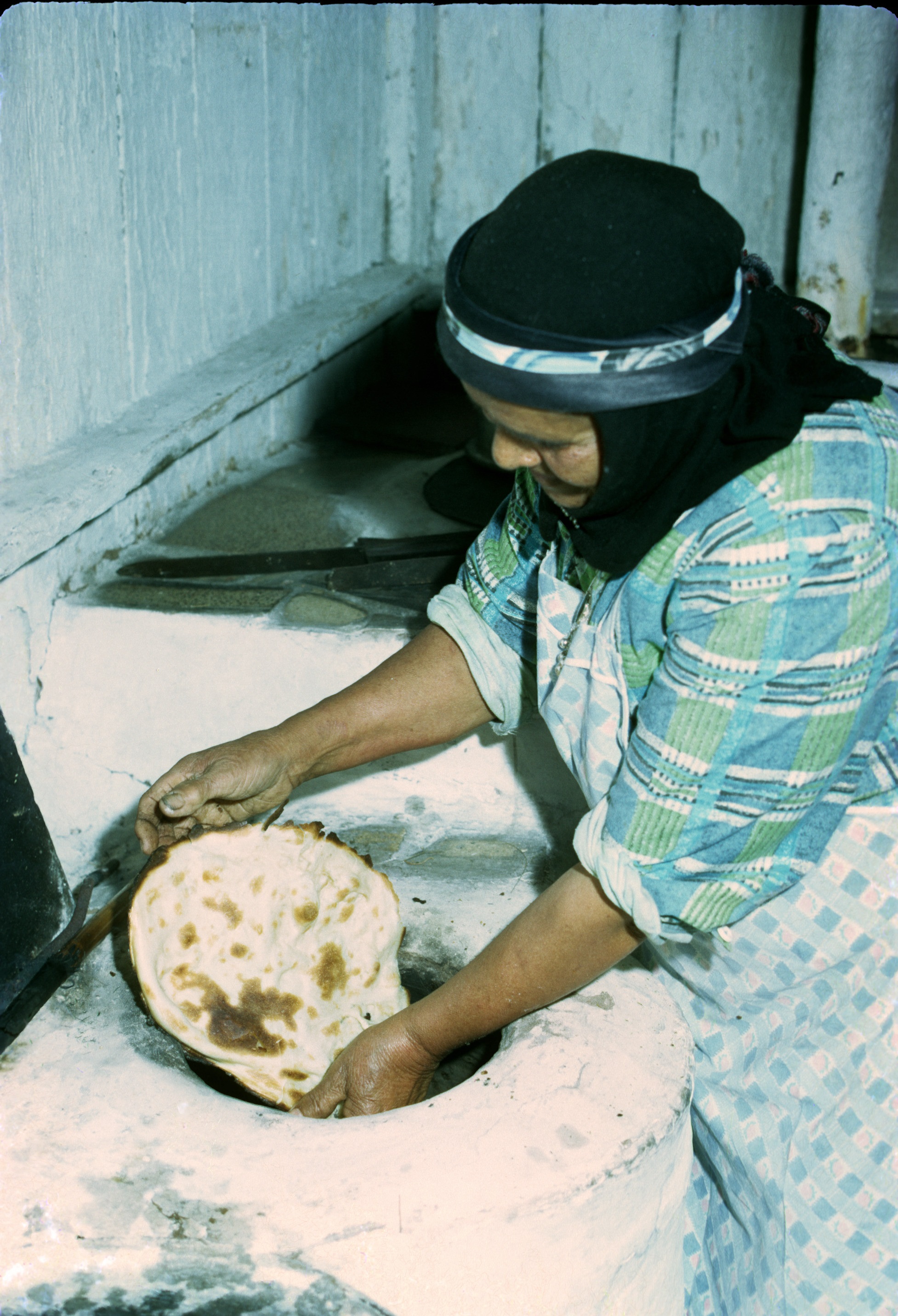
Yemenite Woman Prepares Matzah, 1969 From the collection of the National Library of Israel

Shmura matza, Wikimedia Commons https://commons.wikimedia.org/wiki/File:Shmura_Matzo.jpg
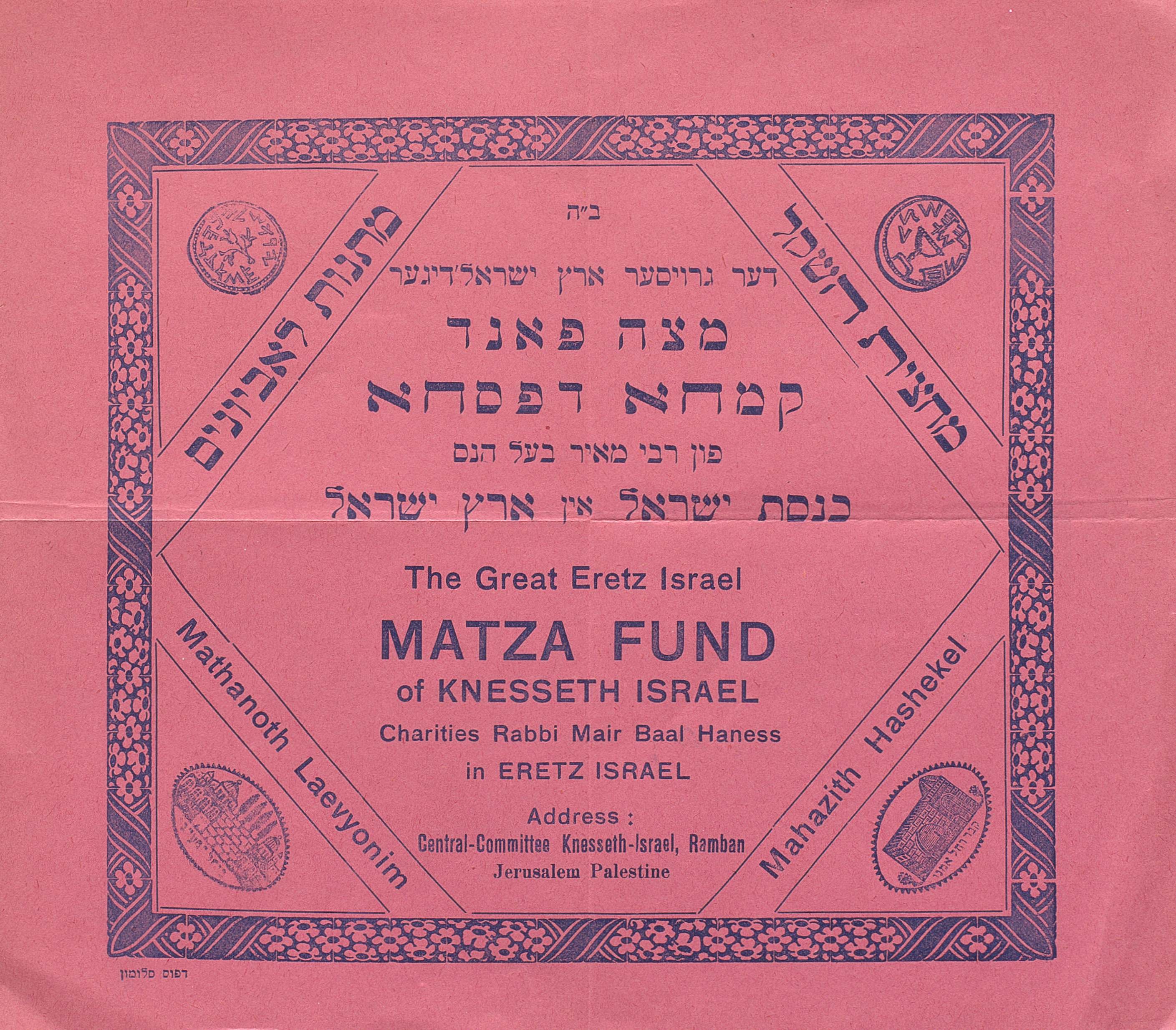
Matza Fund for Jews in Palestine, From the collection of the National Library of Israel
This notice is an appeal for the Matza fund of the Rabbi Meir Baal HaNes Association. The poster is written in Yiddish and English and appeals to people to donate their ”Mathonoth La’evyonim” and “Mahazith Hashekel” money from Purim to the organisation’s “Kimcha de’Pischa.”
Kimcha de’Pischa is an ancient custom with roots in the Jerusalem Talmud, which involved the distribution of Kosher for Pesach flour to poor people so that they could make matzah for the holiday of Pesach. Over time, as flour become more easily available and people stopped baking their own matzah, the custom changed and instead money is collected and distributed to assist with the needs of the holiday.
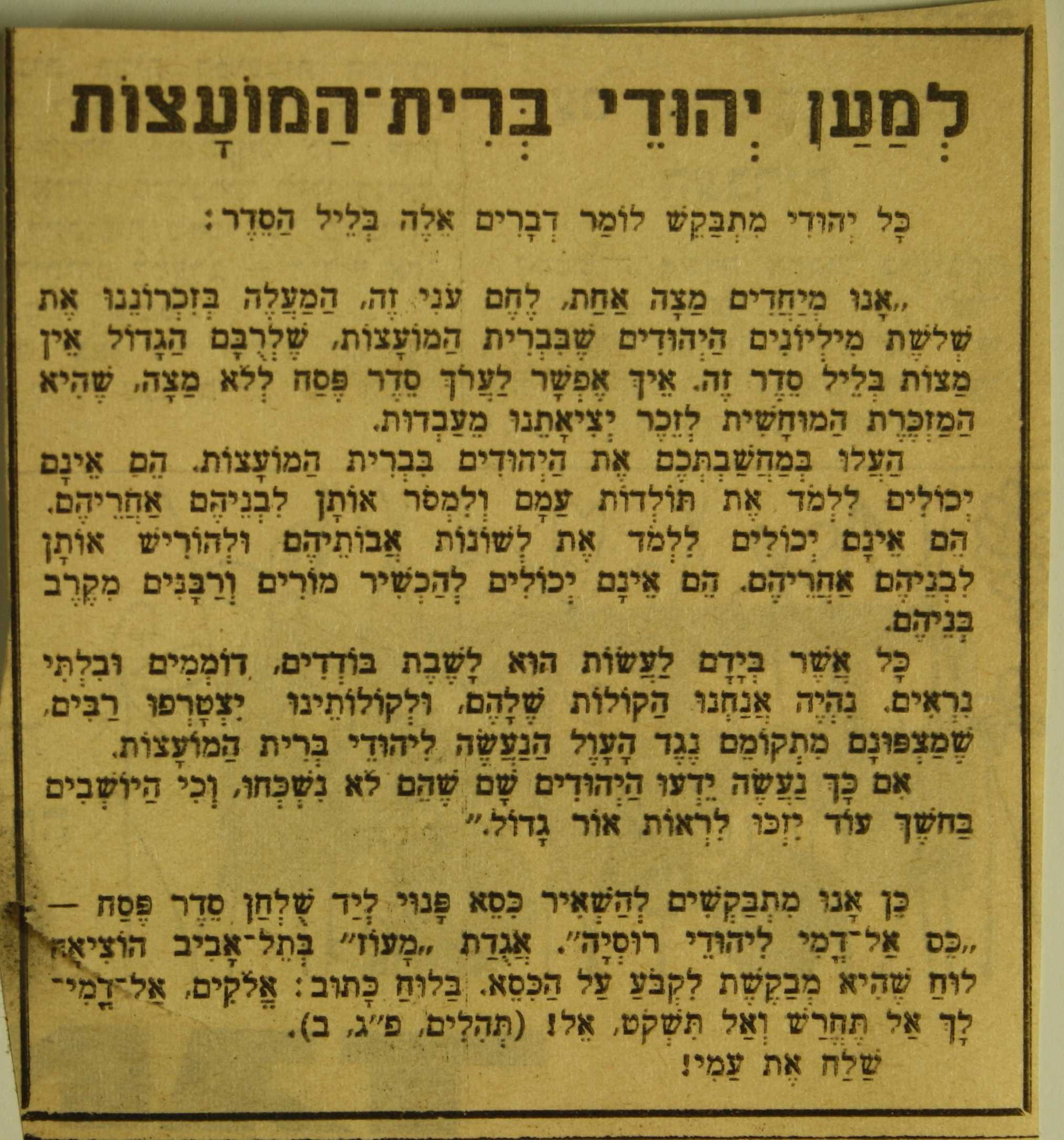
Seder Reading for Soviet Jews, 1969, From the collection of the National Library of Israel
This is a text that was published on the eve of Passover 1969 asking people to mention the struggle of Soviet Jews at their Seders and to set aside matzah, “the bread of affliction,” as a tangible reminder of the suffering of the Jews of the Soviet Union who were prohibited from learning about their religion, their history, and their language.



